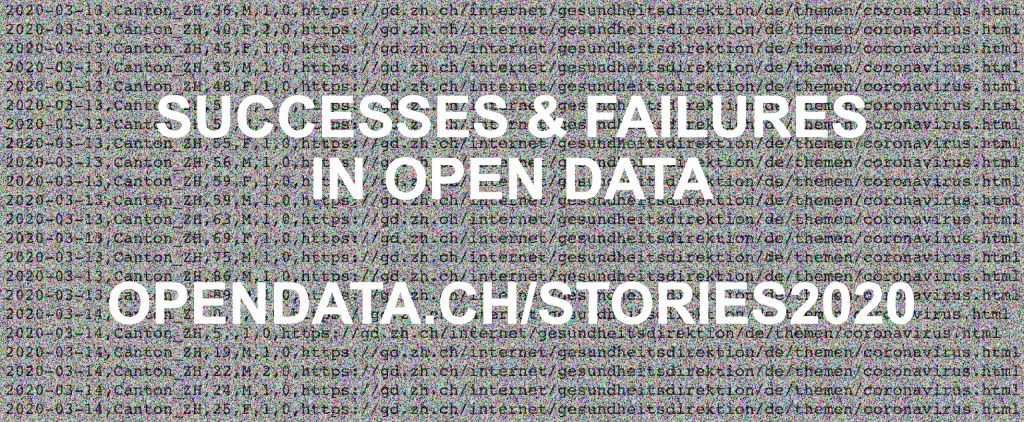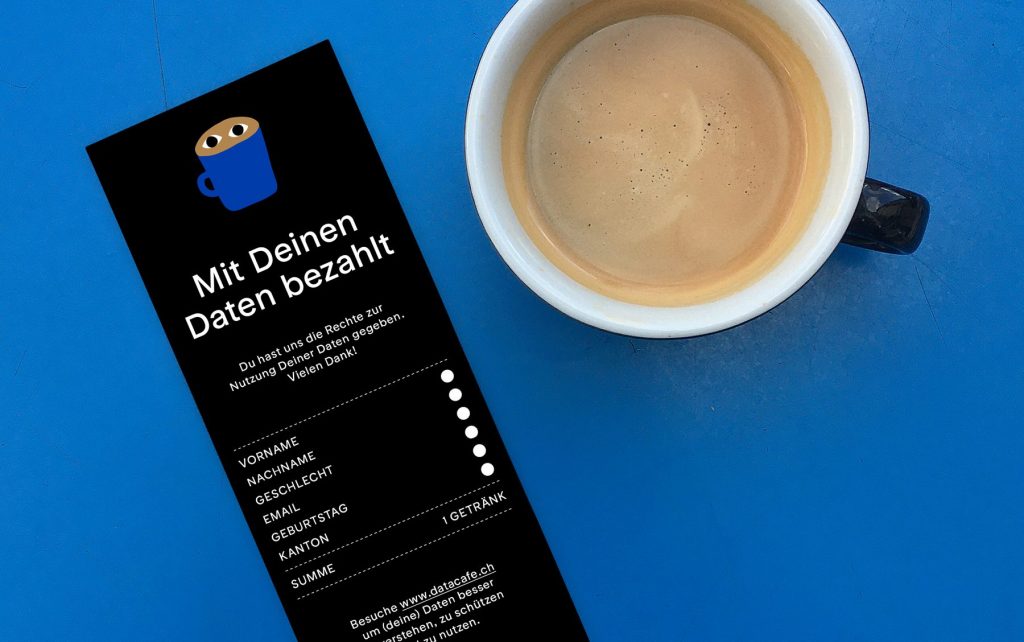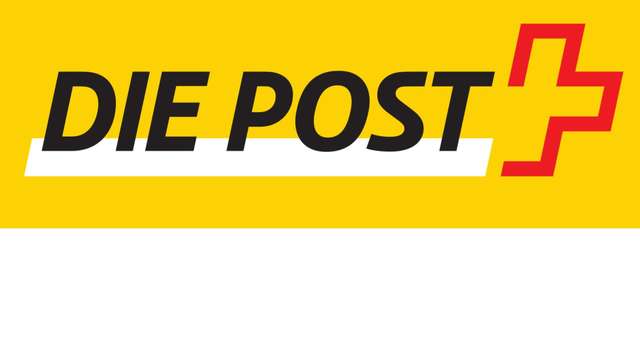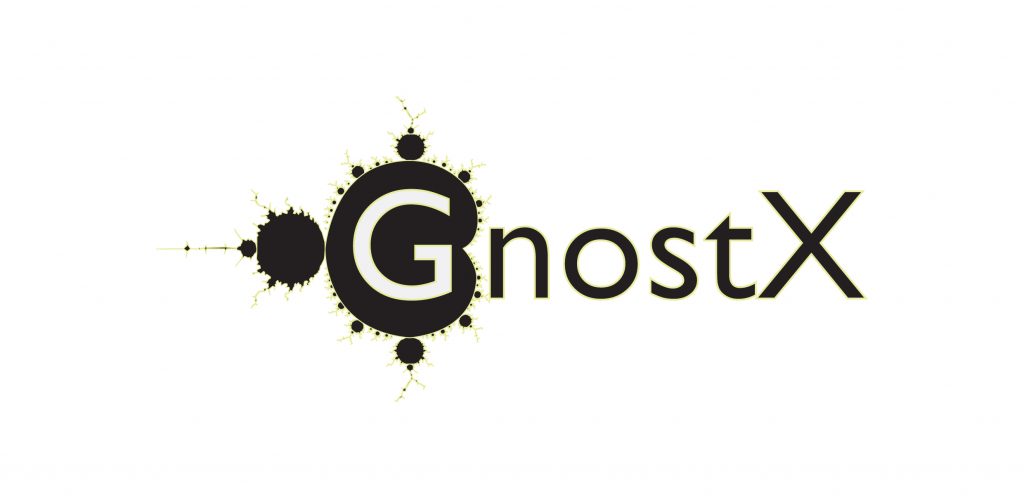Open Farming Hackdays 2020
Vom 4. bis 5. September fanden die ersten Open Farming Hackdays am Landwirtschaftlichen Zentrum Liebegg statt.
Elf neue Lösungsansätze
In nur 36 Stunden wurden die folgenden elf neuen Prototypen für die Landwirtschaft von morgen kreiert.
Die gesunde Kuh: Früherkennung von Krankheiten zur Reduktion von Medikamenten-Einsatz.
Cow Value hilft bei der Entscheidung ob eine Kuh weiter auf dem Hof bleibt oder geschlachtet werden soll.
Decision Support Besamung hilft dabei den idealen Zeitpunkt für die Besamung einer Kuh zu finden.
DorpAdvisor empfiehlt Parzellengenau die richtige Bewässerungsstrategie um den Wasserverbrauch und den Trockenstress für die Pflanzen zu minimieren.
TRIVAtünder ist eine Austauschplattform für Hofdünger
Stop Erosion, eine interaktive Karte, zeigt auf wo das Erosionsrisiko besonders hoch ist, damit gezielte Gegenmassnahmen getroffen werde können.
Dank Open Source Felddaten können Neophyten erkannt, getaggt und automatisch auf einer Landkarte vermerkt werden.
Databndlr vernetzt Konsumentinnen direkt mit den Produzentinnen.
Farmpreneur hilft Bäuerinnen für die Zukunft zu planen
EVAS erfasst die Auslaufzeit der Kühe Automatisch und reduziert so den Aufwand der Bäuerinnen.
Mehr Biodiversität im Ackerbaugebiet zeig auf, wie man ebendiese erreichen könnte.
Begeisterte & engagierte Teilnehmende
Die Teilnehmenden hatten verschiedenste Hintergründe zum Teil ohne landwirtschaftliche Vorkenntnisse: «Motiviert hat mich, dass die zwei Bereiche Landwirtschaft und Hacking eher weit auseinander liegen und dass man daher extrem gut davon profitieren kann, wenn die zwei Bereiche näher zusammen arbeiten. Zudem habe ich keine Ahnung davon wie die Landwirtschaft funktioniert.» meinte einer der Teilnehmenden.
Eine Teilnehmerin meinte dazu: «Vom thematischen inspiriert es mich enorm was für Leute hier zusammen kommen. Es ist mein erstes Mal an einem Hackathon und mit dabei sein zu können und sich auszutauschen und zu sehen wie andere Leute arbeiten war sehr spannend.»
Markus Gusset, vom Bundesamt für Landwirtschaft, war als Challenge-Owner bei Stop Erosion dabei. 75% der Challenge hätten sie im Team lösen können. Zur Rolle von Open Data für seine Challenge meinte er: «Das war die Herausforderung. Nicht alles was wir brauchten um die Challenge anzugehen konnten wir mit öffentlich zugänglichen Daten lösen. Sogar beim Bund war es schwierig die Daten zur Weiterverarbeitung einzubinden. Du kannst sie nicht einfach weiterverarbeiten. Es gibt offene Daten die man ansehen und beziehen kann, aber man brauch zuerst eine Berechtigung für die Weiterverarbeitung. Das war eine Herausforderung für uns da man die Berechtigungen nicht einfach schnell an einem Wochenende erhalten kann.»
Impressionen
Open Data Stories 2019/20

Before and during the Opendata.ch/2020 Forum we asked you to submit your open data success stories and failures. We think it is important to collect and publish these stories to show what our community has been up to, to reflect upon the successes to realise how far we have come and to think about our failures to pinpoint room for improvements.
During our Opendata.ch/2020 Forum on June 23, we have received fourteen stories from you. If you would like to add your own story to our collection of successes, you can do so by using the following form: opendata.ch/stories 2020
Findability of Open Government Data
To be valuable open (government) data has to be easily found and used a lot. Open data is published to be used and the easier it is to find a data set, the more it will be used.
Three of your stories feature the search for Open Government Data:
«With the Relaunch of the Website of the Canton of Zurich in the beginning of July 2020 all Open Government Data of Cantonal Organizations will be findable on our Website, too.»
«Road Names have been published as open data: Official index of streets (Federal Office of Topography swisstopo) Official dataset for “official index of streets”, ID196, as per the catalogue of basic geodata in accordance with Swiss Federal Law. The official index of streets includes all of the street names that have been officially declared in the Swiss Federal Register of Buildings and Dwellings (RBD). Responsibility for the completeness of the names in the official index of streets is governed by cantonal provisions. Link: https://map.geo.admin.ch/?lang=en&topic=ech&bgLayer=ch.swisstopo.swissimage&layers_opacity=0.85&layers=ch.swisstopo.amtliches-strassenverzeichnis&E=2666136.89&N=1239228.80&zoom=12 and https://www.cadastre.ch/de/services/service/registry/street.html»
«I needed a data set to practice ANOVA and went to opendata.swiss to find one that would be suited for the task; I gave up after 90 min. I found the GitHub repository on COVID-19 data from the statistics department of the Canton of Zurich very reliable and useful for data mining.»
COVID-19
COVID-19 was the event that has been impacting all our lives since early 2020. The publication and use of data sets on the pandemic, as well as the fact that the importance of open data suddenly became visible is a success
«The COVID-19 data we gathered on GitHub was a huge success. It really showed the power of open data and a lot of people (including leading news outlets like NZZ and SRF) relied on that data when the BAG could not deliver. For the combination of different OGD publishers working together, joined by amazing people from the open data community to work together on this time of crisis was very inspiring. It showed, that we can “pull it off” when we have to. We were there and helped each other and created this amazing dataset for everyone to use. I think I will never forget the past 3 months and what they did to advance the open data movement in Switzerland.»
«Thanks to an excellent collaboration, we were able to open up our COVID19-data as open data much faster than expected. It was a really good example of who working together and examples of best practice helped to foster opening up data!»
«COVID-19 has raised awareness for timely, comprehensive, and machine-readable open data, which everyone is allowed to freely re-use.»
«Happy thought: the publication of data related to COVID-19 sensitized some of my friends to government data issues. In this context, it was nice to see individuals creating data visualisations for broader audiences, often during their own spare time.»
Open Data Projects
The completion of projects is of course always a success. Here are two examples of open data projects that were advanced in the past year:
«Simply generate coordinates of addresses in Switzerland and display them on a map (Success) Calculating the coordinates of the addresses of teams, clubs, customers or any other group in a simple way and displaying the corresponding points on a map – that was the user-driven request we had again and again on geo.admin.ch.
We have created a simple Excel file that makes this possible:
- Download the XLSX file: http://cms.geo.admin.ch/www.geo.admin.ch/kml/geocoder.xlsx
- Open in Excel, follow any instructions for “Activate content”
- Fill in the addresses in column 1 from line 5 onwards. Click on Enter to calculate the coordinates.
- Select column 9 and copy the contents into a text editor – Save this new TXT file as a KML file (filename.kml)
- Go to
- and click on “Advanced Tools” on the left and then “Import”.
- Click on “local” and upload your KML file. This simple file is downloaded by many government bodies, fire departments, postal service officials etc… and did not cost an hour to set up and publish on https://www.geo.admin.ch/de/news/aktuell.detail.news.html/geo-internet/news2019/news20190307.html »
«I worked on quite an exciting project at the Open Tourism Data Hackdays last year which analysed the volumes of pedestrian traffic. This was exemplary both in its use of Data Science and in the way that the hackathon team – supported by the association fussverkehr.ch which helped us access the data – petitions cities to implement foot traffic counters and share the data openly. This kind of analysis, by the way, was quite critical a few months later in attempting to combat the spread of COVID-19 in Swiss towns, and work on the open-source project that resulted at our Hackdays continues. For my part, I am keen to see a #CivicUrbanism interest group start within Opendata.ch to promote projects of this type.»
Challenges
By facing challenges we always learn a lot. Here are some of the challenges you told us about:
«I have invited cultural institutions to open up some datasets, offering counsel, guidance, and practical assistance, but very few responded to my call.»
«I noticed (once again): Getting data cleaned in JavaScript is really, really hard.»
Personal growth and networking
Learning new things, making new connections, and expanding our horizons are some of the successes you shared with us.
«I learned to work with WikiData in an introduction course by OpenGLAM and added data points regarding female directors of museums, which was fun and felt good! :) This is definitely something that I want to do more often in the future and encourage others to do as well.»
«My success story as a new specialist librarian for research data management: I got to know people who are willing to share as much of their data as possible. They want it to be citable, they want others to work on it, they want others to analyse it. Unfortunately, it became also a bit of a failure story because difficulties arose in technical issues. Where to store it, where to publish it, how to manage access. Together, I want to give them the best support and they should have the opportunity to become seen and recognized in their field by publishing data. We share a vision for that.»
«Met a bunch of inspiring people passionate about Diversity & Inclusion in Open Data at the ODF conference»
Open Data Student Awards
Of course, we also consider the entries for our Open Data Student Awards as success stories. You can read all about the past winners and nominees on our previous blog posts: 2018 | 2019 | 2020
To whom do you want to give your data?

While we use WhatsApp, Instagram and Facebook daily, giving our phone number to the local restaurant or downloading the contact tracking app is not an option for many of us. Covid-19 has revealed many things, including the ambivalent handling of our personal data. The nation-wide awareness campaign «Data Café» run by Opendata.ch and the Mercator Switzerland Foundation is addressing a question that is becoming increasingly important in the current pandemic: “To whom and for what purpose do I want to make my data available?”.
The leading Internet currency is personal data
The principle of the «Data Café» is simple: Visitors receive a coffee in return for providing their full name, gender, e-mail address, birthday and canton of residence. Thereby, the commonplace online deal of “data for services”, is transferred to the analogue world and thus made tangible. “We invite people to reflect on the value and role of data in our society and make them more aware of the opportunities and dangers of data.” explains Nikki Böhler who initiated the Data Café.
Reactions could not have been more diverse
The Campaign was officially launched at the beginning of March at the Helmhaus Zürich. We have seen many different reactions to our offer to receive a coffee in exchange for personal data. From “my data is everywhere already anyways” to “paying with my data?! this is terrible!” we heard all kinds of reactions to our offer. Get a feeling of our the Data Café experience in our video trailer:
Visit one of our upcoming data cafés
After long break due to Corona we are now ready to get back on the road and continue our tour de Suisse. Our next stops are:
- 08.08.20 – Weekly market, Lucerne
- 13.08.20 & 15.08.20 – Kino im Kocher, Bern
- 18.08.20 – Frau Gerolds Garten, Zurich
- 18.09.20 – Rathaus für Kultur, St. Gallen
- 27.09.20 – Literature festival “Literaare”, Thun
- 03.10.20 – Café Mitte, Basel
- 17 – 18.10.20 – Museum for Communication, Bern
Learn to understand, protect and use data
If you have not done so already, make sure to visit our website for short tips on how to better understand, protect and benefit from data. Sign up here if you are interested in joining one of our workshops where you can talk to data experts and ask all your questions to gain practical data knowledge.
Open Data Student Award 2020 Winners
On June 23, 2020, we announced the winner of the 2020 Open Data Student Awards at the Opendata.ch/2020 Forum. For the third consecutive year, we called for students to enter the Open Data work they created as part of their education.
First of all, we would like to thank everyone who entered one of their works. All of your ideas were an inspiration to us and are valuable contributions to promote the use of open data.
This year’s jury consisted of the following people:
Daniel Krebser; Founder/Owner/Managing Partner ATIZO
André Golliez; Co-Founder / Managing Partner Zetamind, Vorstand Opendata.ch
Jannis Valaulta; CH Open Vorstandsmitglied
Prof. Stefan Keller; Informatik-Professor, HSR Rapperswil
Kirsten Dolfus: SBB Technologiemanagement / Enterprise Architektin
They had the joy of looking at all contributions and the difficult task of choosing the winning entry.
We congratulate Ueli Isenschmid, Anian Pleisch, Janik Sievert, and Severin Spörri for their winning project: Fahrgastzahlen VBZ interaktiv visualisiert
You can find the full list of all entries below:

Winner: Fahrgastzahlen VBZ interaktiv visualisiert
Ueli Isenschmid, Anian Pleisch, Janik Sievert, and Severin Spörri, ETH
https://bountan.github.io/vbz-flow-concept/
https://github.com/bountan/vbz-dataprep
The aim of this work is to present the traffic flows over the day in terms of volume as the number of passengers traveling and the percentage utilisation of the network of the transport companies in an interactive map. In addition, this report examines the traffic flows in the public transport system of the city of Zurich during peak times, with particular emphasis on the local bottlenecks at morning and evening peak times.

Open Data Visualisierung: Landwirtschaftliche Betriebe der Schweiz
Laura Christina Utz and Rahel Luder, University of Bern
https://landwirtschaftliche-betriebe-schweiz.opendata.iwi.unibe.ch
Using a data set with 45’000 data sets from the Federal Office for Agriculture (BLW), the students used bubble charts to group and evaluate all 45’000 farms in Switzerland.

Ex-Tangente
Franziska Suter, Tarik Mohamed, Helena Appenzeller, Clemens Widmer, ZHdK
This project investigates the spatial development of the former western tangent. The west tangent connected the motorway exit Shilhölzli in the south with the motorway entrance Aubrugg in the north and thus once crossed the whole city.

Visualize the right thing
Boris Djakovic, University Bern
https://borisdjakovic.github.io/Visualize-the-right-thing/
Which raw data should be processed? What makes sense to visualize at all? Which data generates the greatest added value? This project is intended to help identify and locate “important” data collections and to show which important data are openly available.

Studierende an schweizer Fachhochschulen
Luca Fluri and Koray Oezkaynak, FHNW
https://fhstudents.lucafluri.ch/
This project visualises the development and distribution of students at Swiss universities of applied sciences, focusing on gender differences.

Effizienter Zugverkehr dank künstlicher Intelligenz
Dano Roost and Ralph Meier, ZHAW
https://github.com/Danoishere/projektarbeit-2019
The aim of this project at the ZHAW was to control trains using reinforcement learning, an area of artificial intelligence. A neural network was created using so-called Curriculum Learning and open data from SBB, which increases the difficulty of the generated rail networks, once a certain rate of arrival has been reached.
Thanks to the Sponsors of this years Open Data Student Award:





Five Projects Selected for the Prototype Fund

The Following five projects have been selected by the Prototype Fund Jury to be funded for the first Swiss edition of the Prototype Fund. They will each receive up to CHF 100,000 in funding, at least 5 hours of individual and need-based coaching (e.g. in coding or user-centered design) during the funding period, amongst others. The selected projects promote smart participation in Swiss politics by providing open source solutions and by using open data.
E-COLLECTING
E-Collecting wird das sichere und einfache elektronische Unterschreiben, Validieren und Zählen von Volksbegehren auf Kampagnen-Plattformen ermöglichen.#ROUND 1
FAIR ELECTION
FairElection crée un outil pour les organisations politiques pour choisir des candidat-es en fixant des critères de représentation. Le grand public peut simuler les résultats d’une élection passée en modifiant ces mêmes critères de diversité.#ROUND 1
PROJEKT CH+ GAMES FOR DEMOCRACY
Projekt CH+ Games for Democracy uses game mechanics for political self-education and helps voters select their ideal candidates during elections. CH+ is based on co-design and invites users to be part of the design process.#ROUND 1
Q & A BUNDESHAUS
Q&A Bundeshaus entwickelt eine Crowd Source-Plattform, über die Bürger*innen Fragen oder Anliegen direkt und öffentlich an Parlamentarier*innen richten können.#ROUND 1
VOTY
Voty brings democracy to schools and promotes the understanding of democracy among the youth in a sustainable way through three modules: learning + testing + living democracy.
The Prototype Fund is a joint initiative by Opendata.ch and Mercator Foundation Switzerland.
















